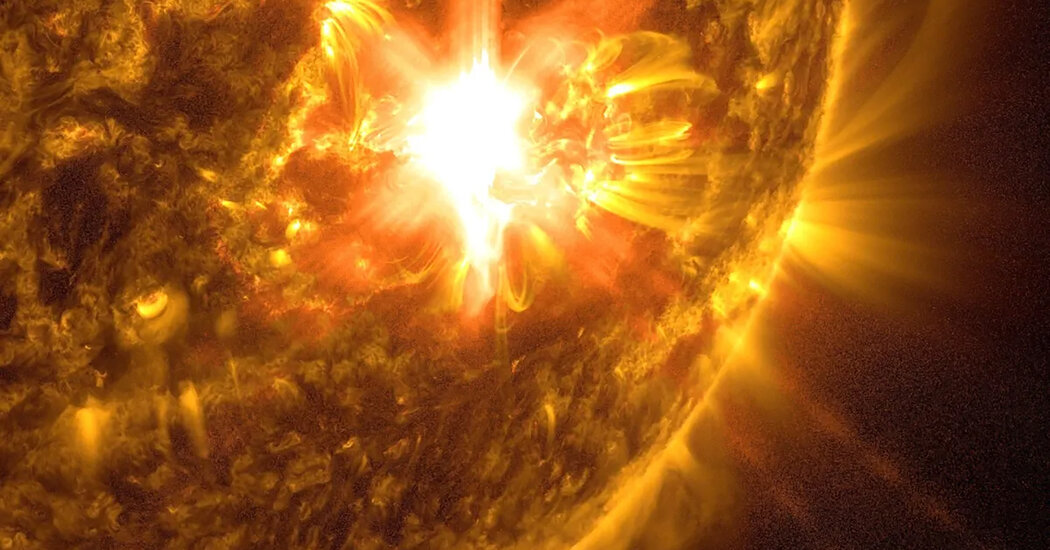Electrical utilities said they weathered earlier conditions as persistent geomagnetic storms were expected to cause another light show in evening skies.
Night skies in many parts of the Northern Hemisphere are expected to bloom again on Saturday night with the vivid colors of the northern lights, or aurora borealis, as a powerful geomagnetic storm caused by a hyperactive sun persists through the weekend.
The National Oceanic and Atmospheric Administration, which monitors space weather, said in an update on Saturday that it continued to observe solar activity that could lead to periods of “severe-extreme” geomagnetic storms. The federal agency first issued a warning on Friday as bursts of material from the sun’s surface traveled into Earth’s atmosphere, causing irregularities in power, navigation and communication systems.
Major power utilities had largely prepared their electrical grids for the solar storm, and their customers were unaffected.
For most people, the solar storm was a gift: It caused ribbons of pink, purple and green light across night skies of much of the United States, Canada and Europe. Where evening skies are clear on Saturday, the lights can be expected again.
Known as aurora, the light is caused by particles from the sun interacting with gases in Earth’s atmosphere, and is usually only observed at latitudes closer to the North or South Pole. But on Friday night, residents of lower latitudes, including those in North Carolina and Arizona, saw the dancing lights.
Jane Wong, 30, of San Francisco, drove to the Presidio overlooking the Golden Gate Bridge where conditions started out foggy. But at midnight, her wait paid off as the sky started to clear.
